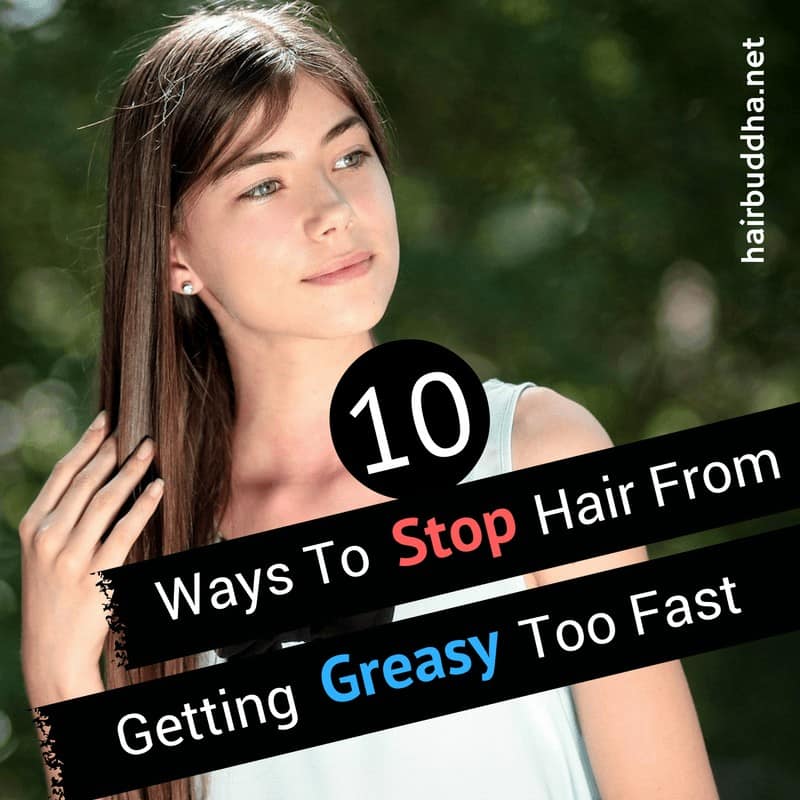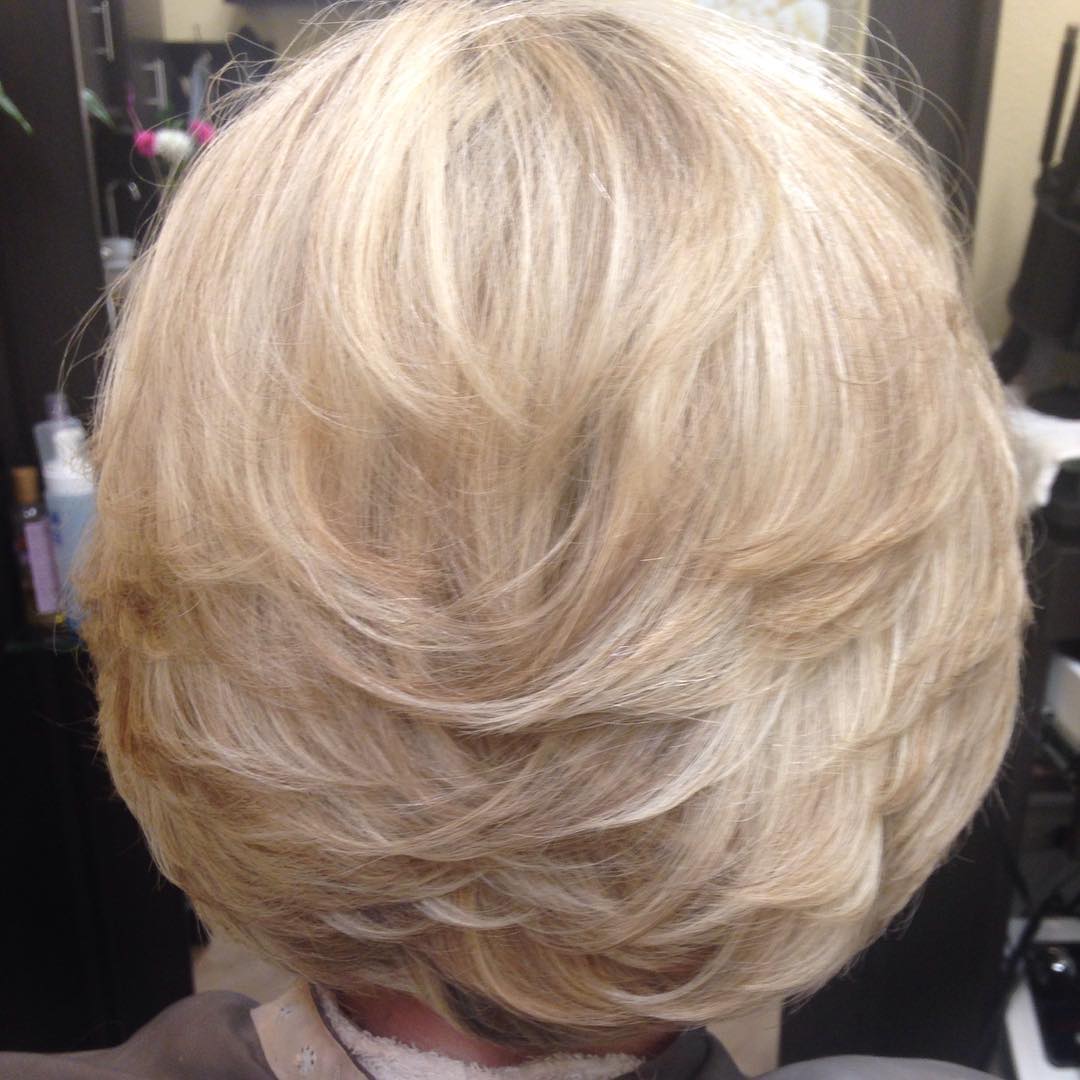Table Of Content

On the flip side, maybe your hair does need to be washed every day. People with very oily skin and/or very active lifestyles may benefit more from a daily wash routine rather than stretching out the time in between washes. "To help train your scalp, I recommend shampooing every other day," he advises. After shampooing, he advises only applying conditioner to the ends of the hair. "At first you will feel like it's not working, but you have to do this a few times before you notice a difference."

Oily Hair: What Causes Wet and Shiny Symptoms?
People who swear by it believe that the ACV breaks down the oil while changing the pH of your hair and scalp, making it less prone to oil buildup in the first place. Practicing good hair hygiene by washing your scalp often and well with a shampoo cleanses the oil and gives your hair a fresh start. Rather than pulling your hair up, try working with the grease instead of against it. To do so, combine equal parts gel and cream to create a styling balm that allows for soft, touchable hold, and use your fingers to rake the product through the length of your hair.
Hair products
Nevertheless, when it comes to sebum, you can have too much of a good thing, especially if you have fine or straight hair that doesn't require as much moisture as thick or curly hair. There are a few key reasons why someone might have a perpetually oily scalp, one of which is shampooing too often or using a shampoo that's too clarifying (maybe even a combination of the two). If your hair seems to get oily faster than it should, there might be internal or external factors at play.
Gua Sha Experts On How To Lift & Depuff Your Eyes In No Time
It can be frustrating and make an already bad-hair day even worse. Yes, seasonal changes can indeed affect the oiliness of your hair. We at TZR only include products that have been independently selected by our editors. We may receive a portion of sales if you purchase a product through a link in this article.
Actually, Yes, You Can Train Your Hair to Be Less Greasy—Here's How - Who What Wear
Actually, Yes, You Can Train Your Hair to Be Less Greasy—Here's How.
Posted: Thu, 01 Jul 2021 07:00:00 GMT [source]
And at the end, rinse with cool water – this helps to close the pores as well as make hair shiny and smooth. Also, when you use the right herbs, they keep oil production in check as well as add lustre, bounce and body to your hair. You will only make it more oily as more contact your hands have with your hair, the more oil is produced by the scalp.
The 4 best ways to sidestep greasy hair
This probably goes without saying, but sweating spreads oils and can leave your hair looking less than fresh. Try to schedule your shampooing around your sweatiest workouts to get the most out of each wash. A 2002 study found that antibacterial tea tree oil improves dandruff, reduces itchiness, and improves greasiness. Look for a shampoo that includes tea tree oil as one of its active ingredients to get the full effect. You may want to try conditioning first and shampooing second to remove extra residue or just do away with your traditional conditioner and try a leave-in conditioning spray (on your ends only).
Stunning Chestnut Brown Hair Inspo For All Hair Types
So You Applied Too Much Hair Oil. Now What? - Allure
So You Applied Too Much Hair Oil. Now What?.
Posted: Fri, 26 Apr 2013 07:00:00 GMT [source]
If your scalp no longer needs to overcompensate for the oil lost to cotton pillowcases, it will eventually produce less oil. Over time, however, your oil production will balance out, and you’ll eventually start seeing less oily locks. Just like some people have oilier skin than others, some have oilier scalps.
Can You Use Shampoo for Oily Hair?
"If you have active sebaceous glands it will take three to four weeks of using the proper shampoo to turn it around." So time to start on those good hair health habits now. Love Beauty and Planet Radical Refresher Tea Tree Oil & Vetiver Conditioner is made of many of the same ingredients as its shampoo counterpart but is formulated to also nourish your strands. These are two essential boxes you want your products to tick when washing oily-feeling hair. To properly wash your hair, gently work a small amount of shampoo into your roots and scalp. Avoid using your nails or creating unnecessary friction on the strands.
Avoid products adding moisture
Oily hair may also be due to a poor rinse job after applying products during the hair-washing process. Clean up your styling tools with a bit of shampoo or gentle soap to strip off the buildup. Likewise, clean out all of the loose hair after each brushing to keep your brush free of oil and dirt. Women may also notice a difference during pregnancy or menstruation. Your body may just be genetically more likely to make extra sebum than others.
“In addition, if the sebum is allowed to remain on the hair for a long period of time it can be attacked and broken down by the micro-organisms on the scalp. The by-products of this process can also have a strong odor.” Yikes. Witch hazel can relieve itching, close oil-producing pores, and reduce inflammation caused by dandruff, pH imbalance, or other scalp disorders.
On day four or so, we'll let you cheat a bit and do an apple cider vinegar rinse in warm (not hot) water—hot water may be too drying. And, according to Lauren Thompson, a stylist at Nunzio Saviano Salon in New York City, it's also gentle enough to use on color-treated hair. As Gohara already explained, over-shampooing is a big cause of constantly greasy hair, but how can you tell if it's the cause of your greasy hair?
If you’re using the correct amount and are still getting significant oil buildup, you may want to consider switching products. The effect is usually temporary and subsides once your stress levels return to normal. Choosing the right style may be just the trick if you're wondering how to make your hair look less greasy. Ponytails, braids, and buns are good choices if your hair is longer because they keep it in place and hide oily roots. Or maybe that was a beauty rule passed down to you from Mom or Grandma?

No comments:
Post a Comment